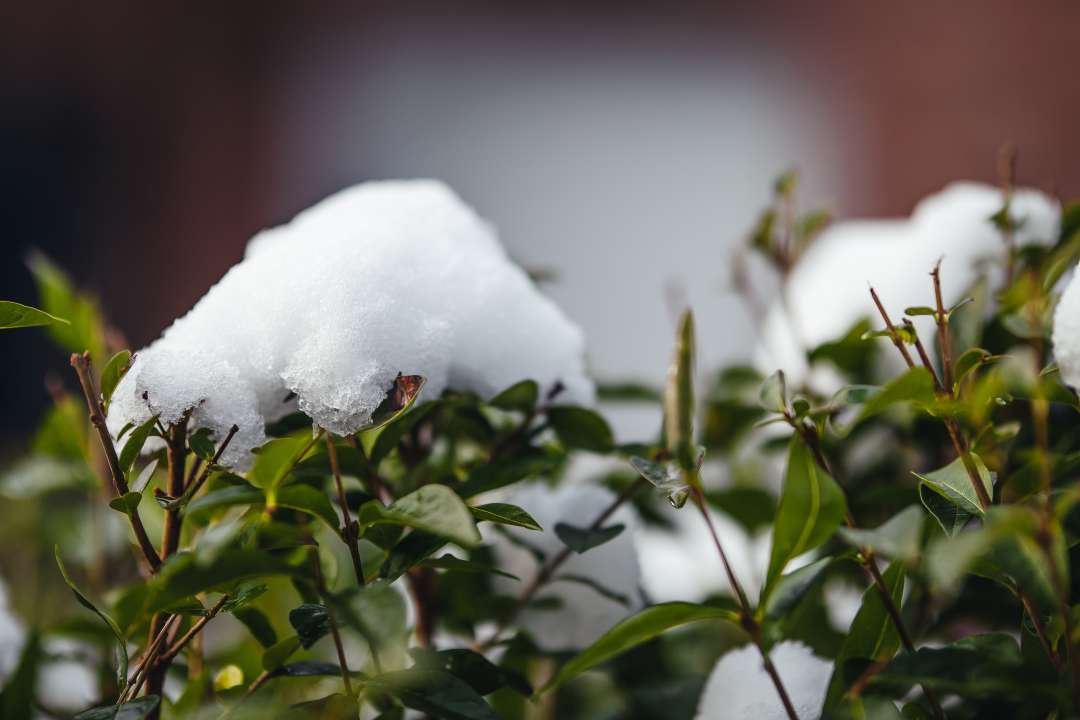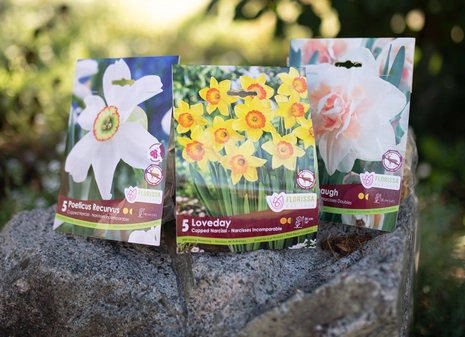As the winter chill approaches, it becomes crucial to shield your garden's delicate plants from the harsh cold.
At GARDENWORKS, we understand the unique needs of various plant varieties, and we're here to provide you with comprehensive tips to ensure the well-being of your broadleaf evergreens, tender perennials, and tropical plants during the winter months.
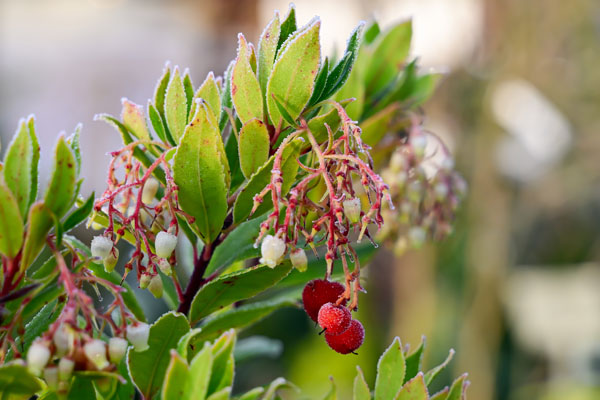
Winter Sensitivity of Broadleaf Evergreens
Certain plants require extra care during winter, and recognizing these vulnerable species is the first step to effective protection.
Broadleaf evergreens, characterized by their ability to retain leaves throughout winter while not belonging to the conifer category, generally exhibit higher sensitivity to cold compared to deciduous plants, which shed their leaves, and conifers, typically identified by needle or scale-like foliage.
Although many broadleaf evergreens naturally acclimate to our standard winter conditions, certain popular varieties such as New Zealand flax, Mexican mock orange, cordylines, "hardy" bananas, hebe, hardy gardenia, pittosporum, and eucalyptus demand additional protective measures. To ensure the optimal health of these favoured broadleaf evergreens, considering extra protection becomes paramount.
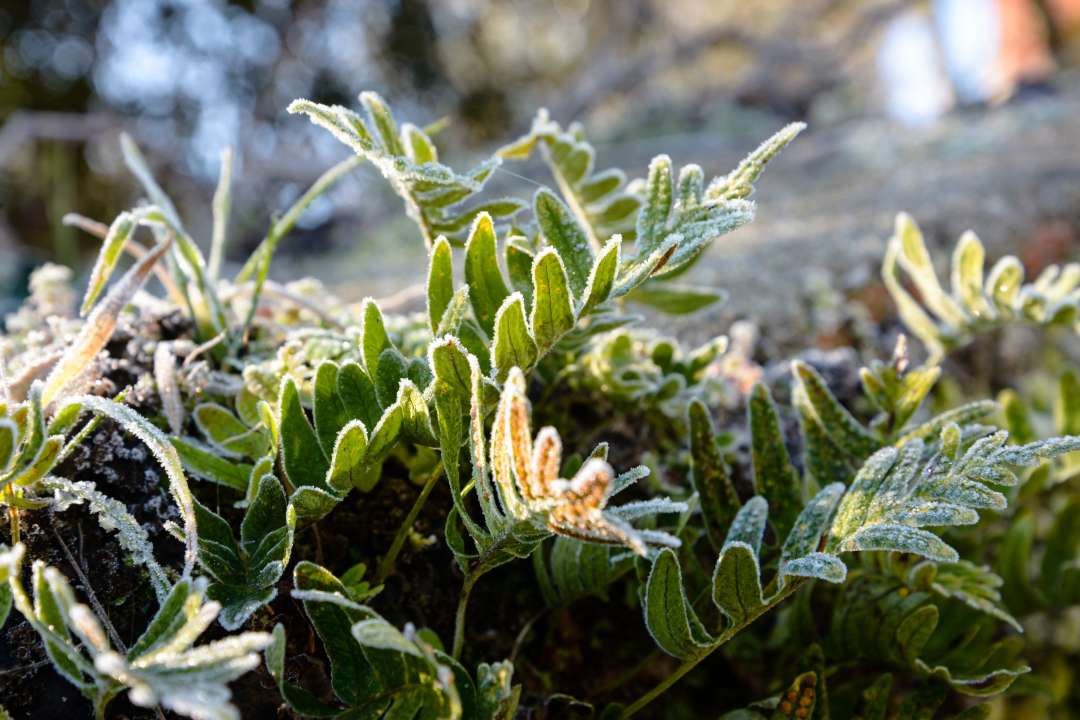
Tropical Plants Growing Outdoors
On the West Coast, the allure of tender perennials and bulbs often leads us to treat them as annuals. To enhance their chances of survival, provide extra protection to plants such as canna and calla lilies, tender sages like ‘Amistad’ and ‘Hot lips’, various fuchsia varieties, and even osteospermums. Move these plants inside immediately if you have not already done so.
Safeguarding Container Plants
For tropical and tropical-like plants cultivated in containers outdoors, such as lantana, abutilon, majesty palm, mandevilla vines, and hibiscus, it's advisable to bring them indoors to protected locations in early fall, as they are unlikely to withstand the winter outdoors.
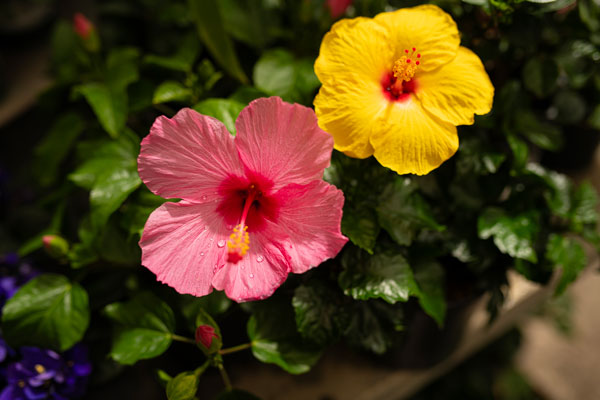
Protective Measures for Your Garden
-
Mulching Roots
-
Apply 2-4” of bark mulch, coco coir (e.g. Mega Mulch), leaves, evergreen boughs, or straw. This helps trap heat released from the soil. If you have tender bulbs planted, this is especially important to ensure their survival. A layer of snow is also a great insulator, if it arrives on the scene ahead of the coldest temperatures.
-
-
Crop Cover for Heat Retention
-
Crop Cover (thick insulating fabric) laid out over plants will help trap heat and keep the foliage a few degrees warmer than the surrounding air. It also prevents moisture loss through the leaves, while still allowing penetration of some light and water.
-
-
Constructing Wind Breaks
-
A wind break structure erected around your vulnerable plants will prevent the wind from drawing moisture from the leaves (the cause of winter burn). Simply place several stakes around the perimeter of your plant, and wrap burlap around them up to the full height of the plant. Click here for a how-to video!
-
-
Watering Before a Cold Spell
-
Water your plants well before a cold spell. Water frozen in the soil is unavailable to the plant, so watering ahead of time ensures that plants are well hydrated and less likely to suffer winter burn damage or desiccation.
-
-
Plants Growing in Containers
-
Move containers to a protected location like a garage, shed, greenhouse or tucked into a protected spot against a wall or close to the house
-
Wrap pots with insulating materials like blankets, burlap, or bubble wrap.
-
Drape crop covers over the foliage for added protection.
-
For exceptionally tender plants, consider bringing them indoors or placing them in an unheated garage.
-
-
Snow Accumulation on Canopy
-
Heavy snow has the potential to accumulate on the canopy of broadleaf evergreens and some conifers, like cedar hedging, resulting in broken branches or a severely damaged hedge.
-
Be prepared to knock snow off these kind of plants before it begins to accumulate.
-
At GARDENWORKS, we're committed to helping you create and maintain a flourishing garden. For any questions or further guidance on winter protection for your plants, don't hesitate to visit your local GARDENWORKS location. Our resident experts are ready to assist you in ensuring the health and vitality of your garden throughout the winter season.
For further reading, check out our Sweet Fragrance of Winter blog.
Happy gardening!

